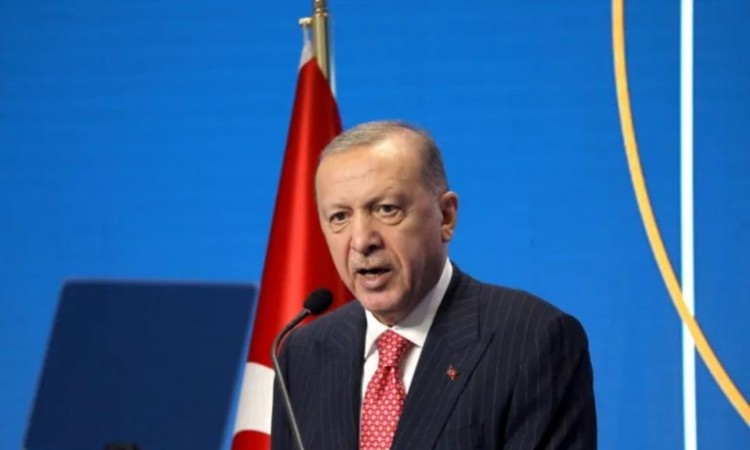
TURKEY- ANKARA: In a bold move to secure its NATO membership, Turkish President Recep Tayyip Erdogan has called upon Sweden to take immediate action and put an end to the demonstrations led by supporters of the banned Kurdistan Workers' Party (PKK) in Stockholm.
During a phone conversation with NATO Secretary-General Jens Stoltenberg on Sunday, Erdogan emphasized Turkey's unwavering commitment to a "constructive attitude" regarding Sweden's potential membership in the alliance. However, he expressed his disappointment, stating that Sweden's recent changes to its terror laws do not align with Ankara's expectations, particularly in light of the PKK's unrestricted ability to stage protests in the country.
According to reports from the media, Erdogan made it clear that Ankara has repeatedly stressed the need for Sweden to take concrete measures against anti-Turkish "terror" activities within its borders. Only then would Turkey consider endorsing Sweden's NATO bid, with a final decision expected to be made at the upcoming Vilnius summit. In addition to the discussion on Sweden's NATO aspirations, the phone call also touched upon the latest developments in Russia.
The Significance of Ending PKK Protests for Sweden's NATO Membership: By addressing the issue of PKK protests, Sweden can actively demonstrate its commitment to countering terrorism and promoting regional stability. Taking decisive action against the PKK's activities within its borders will undoubtedly strengthen its case for NATO membership.
The Impact of PKK Protests on Turkey-Sweden Relations: The continuous presence of PKK demonstrations in Stockholm has strained the relationship between Turkey and Sweden. Ankara has consistently emphasized the importance of combating terrorism together and expects its NATO allies to share the same commitment. Sweden's failure to prevent PKK protests has raised concerns in Turkey, which is keen on ensuring its security and stability.
Turkey's Expectations and Sweden's Response: Turkey seeks concrete steps from Sweden to address the issue of PKK protests. Ankara firmly believes that Sweden's ability to prevent and suppress terrorist activities within its borders is a crucial criterion for evaluating its eligibility for NATO membership. Only when Sweden demonstrates its determination to confront terrorism will Turkey consider extending its support.
NATO, as an alliance committed to collective defense, values the ability of prospective members to tackle internal security challenges effectively. The issue of PKK protests in Sweden is a matter of concern for the alliance, and it expects Sweden to take appropriate measures to counter such activities. The outcome of the upcoming Vilnius summit will depend on Sweden's response to Turkey's expectations.